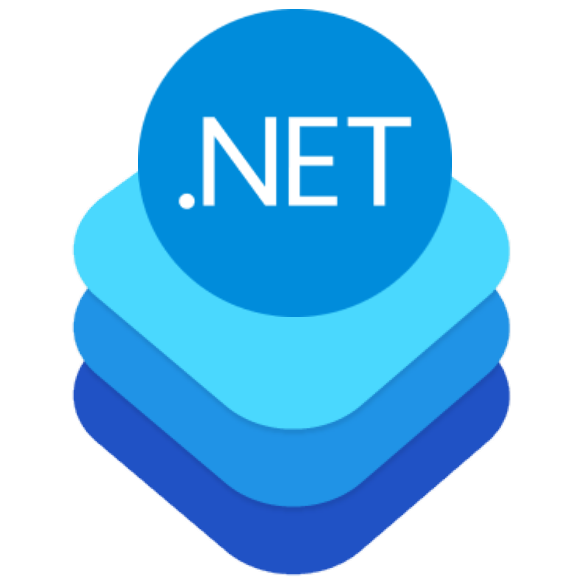18
Apr.NET Developer Skills: What You Need to Know for 2025
.NET Developer Skills
.NET Developer Skills are required for anyone who is hoping to succeed in the ASP.NET field. Whether you want to create dynamic online apps, powerful enterprise solutions, or engage with cloud technologies, .NET provides a flexible foundation for you to expand in application building. If you're wondering what it takes to be a successful .NET developer, it all comes down to mastering a combination of technical knowledge, problem-solving skills, and staying current on development trends.
.NET Developers need Skillslike a solid grasp of programming languages such as C#, ASP.NET, and MVC. But that's just the beginning! For complex projects, .NET developers must also improve their database administration skills, know how to interact with APIs, and get familiar with DevOps approaches.
Hence, In this ASP.NET Tutorial, We are gonna explore about top .NET Developer Skills. along with it, I will also tell you about some other things like Who is an ASP.NET Core Developer, ASP.NET Core Developer's Salary, and their roles and responsibilities many more, Let's see one by one. First, let's start with the basics Who is an ASP.NET Core Developer?
Who is an ASP.NET Core Developer?
An ASP.NET Core Developer is a software developer who specializes in developing web apps, services, and APIs with Microsoft's ASP.NET Core, a modern cross-platform framework. If we talk about ASP.NET Core, It is an open-source, high-performance framework that enables developers to create scalable web applications for Windows, Linux, and macOS.
An ASP.NET Core Developer is often focused on building:
- Web applications: Websites that are dynamic, responsive, and feature-rich.
- APIs: Creating comprehensive RESTful APIs capable of serving data to mobile apps, web apps, and other clients.
- Microservices: It entails creating tiny, self-contained services that communicate with one another, making systems more scalable and manageable.
ASP.NET developers are C# experts too with high experience in front-end technologies such as HTML, CSS, JavaScript, and frameworks like Angular or React. They also have experience with databases (SQL or NoSQL), cloud technologies (Azure or AWS), and DevOps processes for continuous integration and deployment (CI/CD).In a nutshell, an ASP.NET Core Developer blends back-end and front-end skills to provide current web solutions across several platforms.
Top 12 .NET Developer Skills
.NET Developer Skills are important for developing strong and dynamic applications, particularly in today's fast-paced software development environment. Whether you're working on a small project or a huge business system, the appropriate combination of technical knowledge and soft skills will distinguish you as a successful .NET developer.
Here's a breakdown of the key skills that every .NET developer should have.
1. ASP.NET MVC
ASP.NET MVC (Model-View-Controller) is an essential ability for any.NET developer. It enables developers to design scalable, resilient web applications with an organized method. Mastering ASP.NET MVC allows developers to create applications that segregate concerns into models, views, and controllers, improving maintainability and testing.
1. Model
Models in an MVC-based application are the components of the application that are responsible for maintaining the state. Often this state is persisted inside a database for example: we might have a Product class that is used to represent order data from the Products table inside SQL.
2. View
Views in an MVC-based application are the components responsible for displaying the application's user interface. Typically this UI is created off of the model data for example: we might create a Product "Edit" view that surfaces textboxes, dropdowns, and checkboxes based on the current state of a Product object.
3. Controller
Controllers in an MVC-based application are the components responsible for handling end-user interaction, manipulating the model, and ultimately choosing a view to render to display UI. In an MVC application, the view is only about displaying information - it is the controller that handles and responds to user input and interaction.
2. Coding and Programming Languages
Programming languages like C# are essential since it serves as the foundation for all.NET applications. Hence .NET developers should be familiar with both VB.NET and F#. These languages are versatile for developing web, mobile, and desktop applications. Strong coding practices ensure that developers can produce clean, efficient, and secure code.
| Programming Language | Usage in ASP.NET Development | Importance |
| C# (C Sharp) | Core language for ASP.NET applications, used for server-side logic and event handling. | High |
| VB.NET | Alternative to C#. Used in legacy systems or for transitioning from older technologies. | Medium |
| F# | The functional-first language is used for data transformation and specific use cases. | Low to Medium |
| JavaScript | Client-side scripting for creating dynamic UIs, often used with Angular, React, or Vue.js. | High |
| HTML/CSS | Used for structuring and styling web applications, essential for front-end development. | High |
| SQL | For database interactions using Entity Framework or ADO.NET in ASP.NET apps. | High |
| TypeScript | Static-typed superset of JavaScript for maintainable client-side code in large apps. | Medium |
| Python/R | Rarely used but can be integrated for data science and machine learning tasks. | Low |
| PowerShell | Used for automating tasks like deployment or build processes in ASP.NET projects. | Medium |
3. Client-side and Server side technologies
1. Client-side Technologies
.NET engineers must interface their back-end solutions with the front-end, therefore understanding of client-side technologies such as HTML, CSS, JavaScript, and frameworks such as Angular or React is required. Such skills are useful in developing dynamic and responsive web apps that improve the user experience.
2. Server Side Technologies
As a .net developer, you should also be aware of Azure as it will be useful on the Server side
Microsoft Azure provides many different cloud services, including database management, machine learning, artificial intelligence, networking, computing, storage, analytics, and Internet of Things (IoT) services.

Let's look at some factors leading to businesses' increasing adoption of Azure.
- Cost Efficiency: Azure provides a pay-as-you-go model to mitigate businesses' capital expenses. Skilled professionals can leverage this feature of Azure and maximize the financial benefits of cloud adoption.
- Increase in Use of Containers: Containers with Azure support quick application deployment, configuration, and scaling.
- Growth in IoT: The increased adoption of IoT devices creates a need for skilled professionals with knowledge about Azure’s ability to store massive amounts of data collected by these devices securely. With enterprises' increasing interest in hybrid environments that combine on-premises software with the cloud, the demand for Azure skills rises.
- Microsoft’s commitment to Azure: Microsoft has several strategic commitments to make Azure even more reliable. Introduction of pre-built templates for data analytics and ML services, improvement in the performance of SQL Server on Azure VMs, significant investments across the entire suite of Microsoft 365 products, etc, increase the demand for Azure skills.
- Migrating from IaaS to SaaS Changes Requirements: Organizations are migrating from IaaS to SaaS. With this shift, companies need employees who can manage and operate their infrastructure.
- Big Data and Analytics: Azure provides Azure HDInsight and Azure Synapse Analytics for big data. This increases the requirement for skilled Azure professionals to harness these tools and help in data-driven decision-making.
4. Configuring Database
As a.NET developer, establishing databases is an important aspect of backend development.
The process normally includes:
- Choosing a database: Popular options include SQL Server, MySQL, and PostgreSQL. Entity Framework and ADO.NET are frequently used for database access.
- Connection Strings: These are necessary for connecting your application to the database. It includes server information, database name, credentials, and security settings.
- Using Object-Relational Mapping (ORM) tools, such as Entity Framework, streamlines CRUD (Create, Read, Update, and Delete) activities by mapping database tables to objects.
- Database Migrations: Tools like as Entity Framework offer migrations, allowing developers to manage schema changes over time.
- Security: It is vital to provide encryption, SQL injection prevention, and secure credential management in the configuration file.
5. Testing & Debugging
As a.NET developer, testing and debugging are critical components of the development process to ensure strong and dependable solutions. This is how they are handled.
1. Unit Testing.
- To check individual components, developers build unit tests in frameworks such as xUnit, NUnit, and MSTest.
- These tests guarantee that each component of the code works as intended.
2. Integration Testing.
- Integration tests guarantee that different modules interact correctly.
- Tools such as Entity Framework In-Memory and mocking frameworks are used to replicate real data and systems.
3. Debugging.
- Tools like Visual Studio Debugger, which allows developers to step through code, set breakpoints, and inspect variables, make debugging in.NET more efficient.
- Remote debugging is commonly used for cloud-based apps and diagnostic tools such as dotnet-trace or Application Insights help to analyze performance and detect bottlenecks.
4. Automation Testing
- Continuous integration technologies such as Azure DevOps, Jenkins, and GitHub Actions automate testing and verify that the code passes all necessary tests prior to deployment.
5. Error Handling and Logging.
- Efficient error handling with try-catch blocks and logging via Serilog or NLog allows developers to capture errors, making it easier to discover and resolve problems while debugging.
| The following are the most often used debugging and testing tools among all .NET developers. |
| Visual Studio Debugger |
| Code Profilers |
| Unit Testing Frameworks |
| Fiddler |
| Postman |
| Application Insights |
6. Budget Design
Effective budget design is a soft talent that .NET developers require while working on large-scale projects. Understanding the expenses of development, from software licenses to cloud services, enables developers to make cost-effective decisions that keep projects under budget.
7. Time Management
Developers frequently work to tight deadlines. Time management is critical for prioritizing activities, completing deadlines, and delivering excellent code on time. Microsoft Project, Trello, and Jira are popular tools for efficient time and work management.
8. Problem-Solving
You also have to be a problem-solver as a developer. Problem-solving is a vital ability for .NET developers. This skill is required to handle development obstacles, whether it is debugging code or developing novel ways to optimize apps. Strong problem-solving abilities guarantee the success of every developer. The following 2 factors may be helpful for you to become .net developer.
1. Refactoring Code
Refactoring is a critical ability for .NET developers. It entails enhancing the structure, readability, and performance of code while retaining its exterior behavior. This technique reduces unnecessary code, improves maintainability, and ensures that the system is scalable and responsive to new features.
A.NET developer must refactor on a frequent basis to achieve optimal performance and security.
The key principles include:
- Breaking down complex procedures into smaller, more manageable components.
- Eliminating unneeded complications.
- Using design patterns and SOLID concepts.
- This keeps the codebase clean and in sync with standard practices, making future changes easy.
2. Master SCRUM
- As a.NET developer, mastering SCRUM entails effectively working inside an Agile framework to provide iterative software solutions.
- Participating in daily standups, sprint planning, and retrospective meetings, working closely with cross-functional teams, and adjusting to changing requirements through continuous communication and feedback loops are all essential SCRUM abilities.
- Developers must also prioritize jobs, manage time effectively, and deliver incremental updates.
- SCRUM promotes teamwork, customer input, and continual improvement, which is consistent with the iterative nature of software development in.NET projects.
9. Customer Service
.NET developers frequently collaborate with clients and stakeholders. Understanding customer requirements and providing solutions that meet them is critical. Providing outstanding customer service helps a developer translate technical specifications into business solutions.
10. Verbal Communication
Clear and simple verbal communication skills are required whether working in groups or interacting with clients. Explaining complicated technical topics in comprehensible language helps to guarantee that the project runs well and that all parties are on the same page.
11. Collaboration
Modern development is team-based, requiring seamless communication among developers, designers, testers, and stakeholders. Collaboration, which uses platforms like GitHub for version control and applications like Slack for communication, assures effective teamwork and project success.
12. Earning MCSD, MCTS, and MVP Certification
Last but not least, earning MCSD, MCTS, and MVP Certification can enrich your all key skills plus you will get a great certified tag. Here are the details of the MCSD, MCTS, and MVP certifications for.NET developers:
1. Microsoft Certified Solutions Developer (MCSD).
This certification focuses on designing and developing advanced applications with Microsoft technologies like.NET. It has been phased out, however it confirmed a developer's abilities in current application development.
2. Microsoft Certified Technology Specialist (MCTS).
MCTS specializes in a single technology, such as.NET, and verifies skill with certain Microsoft tools. It has also been phased away in favor of more modern certifications.
3. Microsoft MVP (Most Valuable Professional)
The MVP award is granted to highly competent people who make significant contributions to the Microsoft community while exhibiting deep competence in technologies such as.NET. It is given out once a year in recognition of contributions.
ASP.NET Core Developer Roles and Responsibilities
Asp.Net Core developers are mainly responsible for designing and developing web-based applications. Besides this, an Asp.Net Core Developer must be capable of analyzing specific problems and providing solutions or creating the appropriate requirements.
The significant roles and responsibilities of an Asp.Net Core developer are as below :
- Developing Code with the help of .Net Framework (C#, F#, etc.)
- Can develop web-based applications and test them by running the .Net Core-based Applications.
- Can able to upgrade, build, or debug the existing developed systems.
- Can prepare the procedure and policy document related to the execution of the applications.
- Can be able to revise, update, and debug the code.
- Can provide technical support for any desktop or web-based application.
- Can collaborate with the other teams to generate software design and architecture.
- Can generate the documentation in all steps of the SDLC (Software Development Life Cycle).
- Can able to design the backend database for the web-based application.
- Can able to find out the new tools and technology which can be helpful to improve the performance and features of the application.
ASP.NET Core Developer Salary
So, when you decide to start your career as an Asp.Net Core Developer, you need to know the Salary structure for this role in the industry. Because, in the end, final decisions always depend upon the pay scale. The rank of Asp.Net Core Developer in India is definitely among the most popular jobs. Also, we need to remember that the salary amount always depends upon many factors like experience, skills, location, employer, etc. Also, experience always plays a crucial role in defining your salary structure in this role. For example, the average Asp.Net Core Developer salary in India for a minimum experience is around 600K. But at the same time, an experienced person can get a salary package of around or above 1000K in India.
As the developer, as the number of years increases in experience, we always get a better salary range. As people spend time in a particular industry job profile, they can apply the experience or knowledge about the drive to achieve the specified role. Also, Job recruiters always prefer candidates with good work experience.
ASP.NET Core Developer Jobs
So, now the question arises: Is there any demand for the Asp.Net Core Developer in the Indian Job Market? In a single word, the answer is YES, out of the many opportunities in the technical industry, one of the most demanding job profiles is Asp.NET Core developer for employers. As an Asp.Net Core Developer, we can contribute to different development sections like Full Stack Platform, Web-Based Platform, etc.
As per Naukri.Com, approximately more than 11,000 Asp.Net Core Developers Jobs are available in India. Job locations are all major cities in India, and the salary structure ranges between 300K to 100000k as per experience. This is just from Naukri.com, where there are so many job portals in India, including Monster.com, indeed, LinkedIn, and many others. So, if we consider all the job portals, this number will increase much more.
Difference between ASP.NET Core Developer and Full Stack .NET Developer
So, when we enter the real world of web development, we find that roles typically overlap with different job profiles. For this reason, we need to understand a clear idea about the difference between Asp.Net Core Developer and Full Stack .Net Developer.
1. Asp.Net Core Developer
An Asp.Net Core Developer is mainly responsible for managing and supporting the existing web-based application. As an Asp.Net Core developer, you should be able to design and develop any web application, maintaining the performance of the applications along with requirement analyzing and functionality analysis.
An Asp.Net Core developer needs to collaborate with the internal teams to develop clean, scalable code using the .Net Core Programming languages.
2. Full Stack .Net Developer
A Full Stack .Net Developer is a technical expert who can handle the web applications' client side and server side. They must be part of the development team that works on all the web application steps. In addition, full-Stack developers maintain the databases, design, and handle the back-end operation of the application and ensure the error-free development, testing, and deployment of the application.
Full Stack .Net Developer is a multi-functional job role. Because they know both layers of the web application, i.e., front-end and back-end. So, naturally, this job role is in high demand. Moreover, due to their multiple types of skills, they can participate in any part of the application development process and help the team members if they face any complex technical issues.
Conclusion
I hope that this article helped you relate to the Asp.Net Core Developer job role. Through this article, the reader will get a clear idea about the concept of Asp.Net Core Developer, .net developer skills, and different job information and salaries. Also, you can get a clear idea about the roles and responsibilities of the Asp.Net Core Developer. If you have feedback related to the articles, please drop us a comment in the comments section of this article. If you want to advance your career as a.NET developer, earning .NET Certification Training can help you get there.
FAQs
Take our Aspnet skill challenge to evaluate yourself!

In less than 5 minutes, with our skill challenge, you can identify your knowledge gaps and strengths in a given skill.








